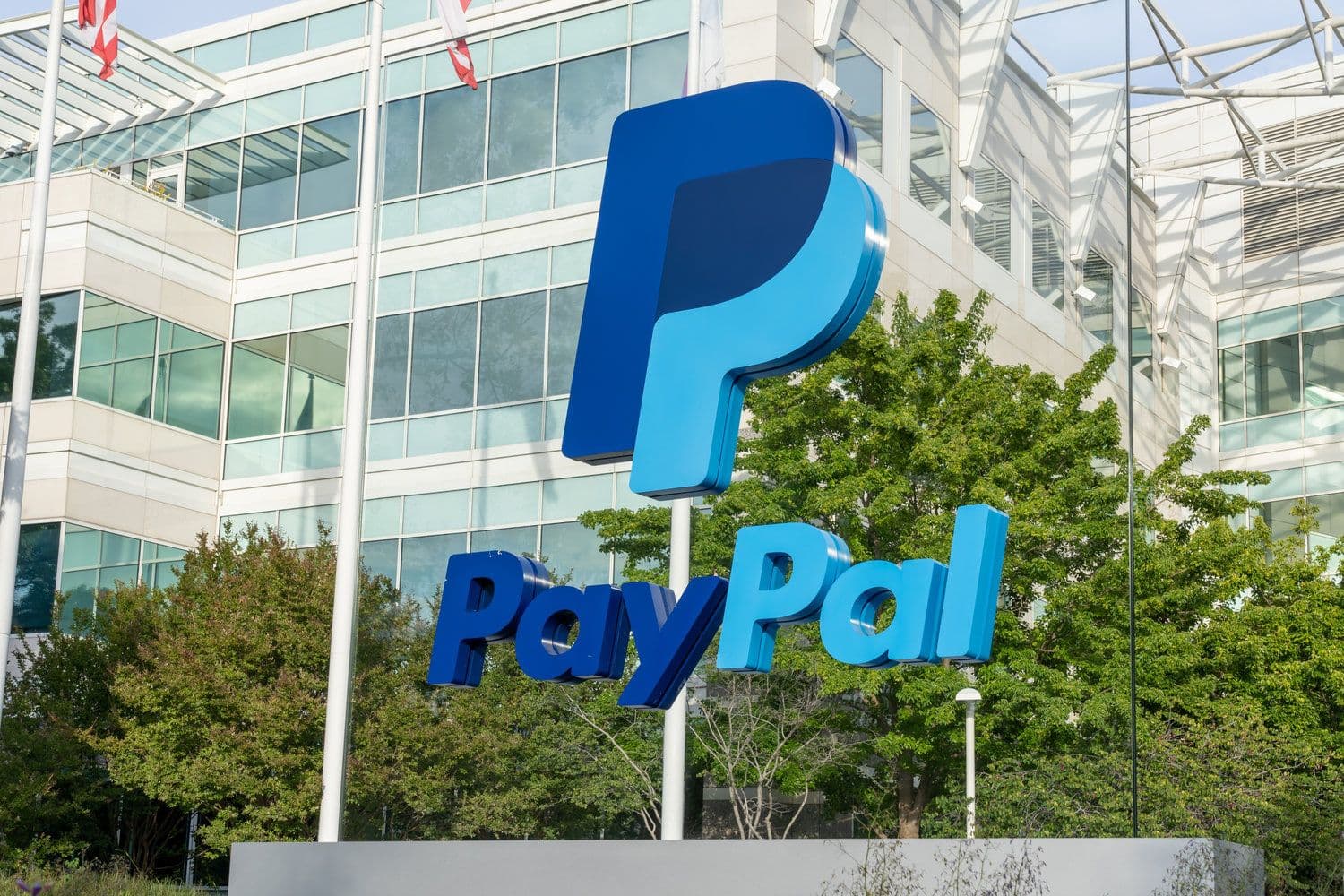PayPal Holdings Inc. will offer U.S. customers a 3.7% annual yield on holdings of its stablecoin, PayPal USD (PYUSD), starting this summer as part of efforts to increase adoption of the digital currency beyond traditional cryptocurrency transactions.
What to Know:
- PayPal will offer a 3.7% annual yield on PYUSD stablecoin holdings for U.S. users, with daily accrual and monthly payouts in PYUSD
- PYUSD's market cap has declined to $873 million from a 2024 peak of $1 billion, remaining far behind Tether's $145 billion
- The yield program may raise regulatory questions about whether PYUSD could be classified as a security
The rewards program will allow users to earn daily interest on their PYUSD holdings, paid out monthly in the same stablecoin. Customers can maintain their PYUSD balances in either PayPal or Venmo wallets while earning yield, with the flexibility to use the digital currency for purchases, transfers or conversion to U.S. dollars.
PayPal introduced PYUSD in August 2023 through a partnership with Paxos Trust Company. The stablecoin maintains a one-to-one peg with the U.S. dollar, backed by dollar deposits, short-term U.S. Treasury securities and similar assets in regulated accounts. Originally launched on the Ethereum blockchain, the token later expanded to the Solana network.
Market Position and Strategic Direction
Despite initial growth, PYUSD's market capitalization has declined from its $1 billion peak in 2024 to approximately $873 million. This represents a small fraction of market leader Tether's USDT, which commands a market cap exceeding $145 billion.
PayPal executives view the yield initiative as crucial to encouraging regular use of PYUSD, moving beyond its current role as a store of value or cryptocurrency trading tool. Jose Fernandez da Ponte, PayPal's blockchain lead, characterized the program as part of a decade-long strategic vision.
"We are halfway in a 10-year journey," Fernandez da Ponte said, indicating PayPal's long-term commitment to stablecoin development.
PayPal CEO Alex Chriss emphasized the company's focus on reducing payment processing costs through stablecoin integration. "We are thinking a lot about how we can change the expense profile of the payments landscape by using stablecoins," he said, highlighting the company's strategic approach to blockchain technology.
Yield Mechanism and Regulatory Considerations
The rewards program will not rely solely on interest generated from PYUSD's backing reserves, providing PayPal with greater flexibility compared to stablecoins that depend on Treasury yields. Fernandez da Ponte confirmed that returns are independent of Federal Reserve interest rate policy.
The yield offering raises potential regulatory concerns about securities classification. Tzahi Kanza, CEO of crypto investment firm Syndika, noted the distinction between standard and yield-bearing stablecoins in regulatory frameworks.
"Stablecoins that don't offer yield are generally not considered securities. However, yield-bearing stablecoins may fall under that classification," Kanza explained, pointing to potential regulatory challenges ahead.
The primary operational risk, according to Kanza, involves maintaining the token's dollar peg. This issue has affected other stablecoins during market volatility, though major tokens like PYUSD have generally remained stable.
Expanding Supported Blockchains
PayPal continues broadening its cryptocurrency capabilities beyond PYUSD development. The company added support for Chainlink (LINK) and Solana (SOL) in April, expanding its digital asset offerings.
PYUSD has already been integrated into PayPal's Xoom cross-border payment service, with plans for further implementation across the company's global payment infrastructure. The company is working to leverage blockchain technology for more efficient international settlements.
Major financial technology firms are increasingly exploring stablecoin products. Robinhood, Revolut, Stripe and Fidelity are all developing or investigating their own stablecoin initiatives. Coinbase currently offers yield on USDC holdings, while Circle recently launched a dedicated network for stablecoin-based international payments.
Final Thoughts
PayPal's move to offer yield on PYUSD signals an aggressive push to increase adoption of its stablecoin through competitive returns. The initiative represents a significant step in PayPal's longer-term strategy to integrate blockchain technology into its core payment infrastructure, though regulatory questions remain about the classification and oversight of yield-bearing stablecoins.



